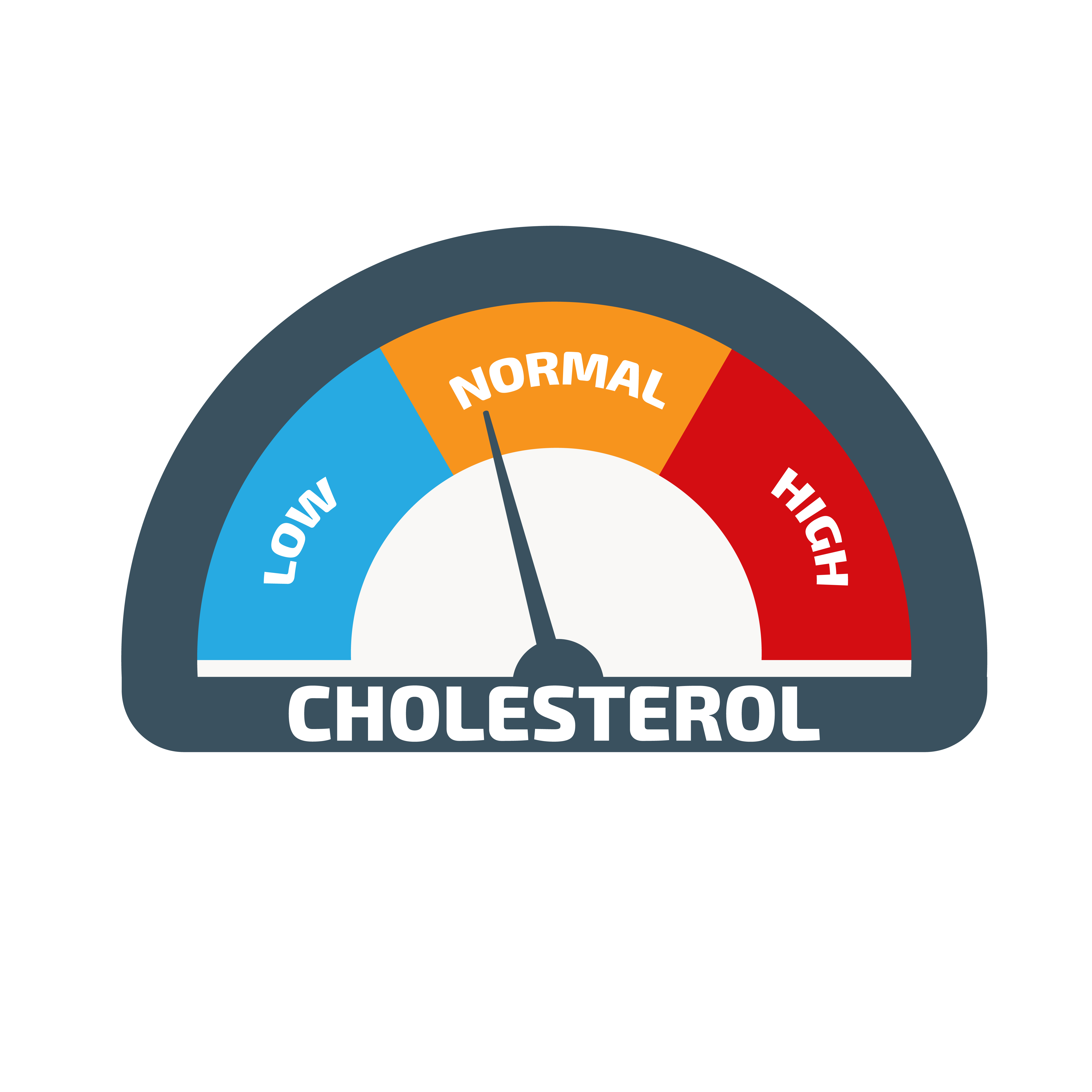A healthy cholesterol diet can greatly affect your cholesterol levels and heart health. Regular physical activities, if combined with cholesterol diet can help control cholesterol levels.
High blood cholesterol level can affect everyone. It increases the risk of developing coronary heart disease by encouraging the build up of fatty acids on the walls of the artery that can harden and narrow the arteries. The whole process is called as atherosclerosis. The higher your cholesterol level, the greater your chance of developing heart disease and stroke. If you have high cholesterol level, there are some steps you can take to reduce cholesterol and improve your overall health. This document will show you how to take action for lowering cholesterol levels.

Cholesterol
Cholesterol is a fat-like substance which is mainly made in the body. It is found in the walls of cells in all parts of the body, from the nervous system to the heart to the liver. Cholesterol is considered to be the building block for cell walls; it plays a significant role in how every cell works throughout the body.
Also Read: What You Need To Know About Fatty Liver Diseases!
The body uses cholesterol to make vitamin D, hormones such as estrogen and testosterone, biles acids, and other substances. Your liver makes most of the cholesterol your body requires, but it is found in some foods also. It is the kind of fat that you eat and the daily routine you follow will greatly influence the cholesterol produced by your body.
Test your cholesterol before its too late
Usually, the problem does not cause any symptoms. Most of the population with high cholesterol don’t know that they have high cholesterol. Hence, it is important for adults to get their cholesterol level checked at least once every five years.
A lipoprotein profile test is performed to check your levels of total cholesterol, high-density lipoprotein (HDL), low-density lipoprotein (LDL), and triglycerides. HDL is called as good cholesterol because it helps eliminate extra cholesterol from the body. Whereas, LDL is considered to be the bad cholesterol due to its tendency of building up and blocking arteries.
Manage your cholesterol
You can control cholesterol levels through healthy eating, weight loss programs, exercise, and if required medication. Following are some tips to control your cholesterol levels:
- Excess body weight tends to raise your LDL levels. Also, it is responsible for increasing your triglycerides blood levels. Lose extra pounds and maintain a healthy weight through balanced diet and exercise.
- Involve in moderate-intensity aerobic activities at least thrice a week. These activities include swimming, leisure cycling, and brisk walking. Make sure that your each session should last at least 10 minutes.
- Participate in muscle-strengthening activities that target your muscles including shoulders, arms, chest, abdomen, back, hips, and legs. Muscle strengthening activities include weight lifting (note: women should use light weight), and weight resistance exercise.
- Avoid eating foods that contain trans fat such as cakes, pastries, and deep fried food.
Cholesterol food diet
Making simple dietary changes in your diet can dramatically affect your blood cholesterol levels and improve your overall health. The following ideas will help you do necessary changes to your diet.
Check your fat intake- One can control cholesterol level by cutting down on saturated fats. Avoid red meat and chicken as these are highly saturated. These food items can be called as cholesterol foods. A healthier cholesterol level can be achieved by replacing them with small amounts of monosaturated fats to keep the level of good cholesterol high in the body. Also, avoid eating trans fat rich food.
Add fruits in your diet– Fruits contain antioxidants that work to stop bad cholesterol from being oxidized and as a result more easily deposited on the wall of the artery as atherosclerotic plaque. Therefore, it is important to consider how many fruits you eat every day. You should eat at least five portions of fruits daily.
Eat fiber rich diet- An increased fiber intake can lead to healthier cholesterol levels. An amount of 20 to 35 grams fiber a day is considered to be good for cardiovascular health. Pulses, cereals, vegetables, and fruits are a good source of fiber. You can boost your intake of fiber by adding porridge, vegetables, and wholegrain varieties of rice and cereals.
The role of nuts- Nuts plays a vital role in lowering cholesterol levels. Although they are high in fat, they are extremely beneficial in controlling cholesterol. Eat a palmful of unsalted walnuts, hazelnuts, or almonds in your breakfast daily. Depending on your choice you can add onto cereals, desserts, and salads.
Also Read: How to Switch Over to the Cavemen Paleo Diet!
Important tips
- Use olive oil, linseed oil, and groundnut oil while cooking and baking.
- Avoid eating processed foods and try to make cakes and treats at your home.
- Try to add different sources of proteins such as soya based products, beans, and lentils in your dish while cooking. All these food products have a beneficial effect on cholesterol levels.
- Always choose low-fat containing creams, yogurt, skimmed milk, and cheeses.




